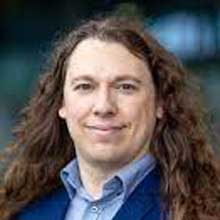Linguistic and Cultural Mediation
Enrolment until 2024/2025

Marco S. Nobile received the PhD in Computer Science from the University of Milano-Bicocca (Italy) in 2015. He then spent 4 years as post-doc researcher at UNIMIB, before moving to the Eindhoven University of Technology (Eindhoven, The Netherlands) as Assistant Professor in 2019. He then moved as Associate Professor to the Department of Environmental Sciences, Informatics and Statistics of the Ca' Foscari University of Venice (Italy) in 2021.
During his career, he has been visiting student and researcher in several institutions, notably the University of Tokyo (Japan), the Research Center for Advanced Science and Technology (RCAST, Tokyo, Japan), the North Carolina State University (NC, USA), and the Vanderbilt University (TN, USA).
At the Ca' Foscari University he is serving as Rector's delegate for Digital Innovation for Research. He is also member of the Joint Teaching Staff-Student Committee, representing the Bachelor's Degree in "Hospitality Innovation".
Marco S. Nobile is currently member of the Bicocca Bioinformatics, Biostatistics and Bioimaging (B4) research center (Monza, Italy). He is senior member of the IEEE and co-chair of the Bioinformatics and Bioengineering Technical Committee (IEEE BBTC). From 2019 to 2024 he has been chair of the IEEE CIS Task Force on advanced representation in biological and medical search and optimization. He is member of the COST Action CA21169 “Information, Coding, and Biological Function: the Dynamics of Life (DYNALIFE)”, where he belongs to the Working Group “Statistical and probabilistic modelling and analysis, bioinformatics and machine learning”.
His main research interest is Computational Intelligence (i.e., bio-inspired algorithms, neural networks, evolutionary computation, swarm intelligence, and fuzzy reasoning) applied to complex problems in biomedicine. He also works on the development of interpretable / trustable AI methods for clinical decision support, and investigates the ethical aspects of AI in medicine. He worked extensively on medical image analysis (supervised and unsupervised) and proteomics. He has a long experience with modeling and simulation of complex systems, either deterministic, stochastic, and hybrid. He investigates the emergent phenomena in nature, bird flocks in particular, using Computational Intelligence and Big Data. Marco S. Nobile worked on high-performance computing (GPUs in particular), leveraging HPC infrastructures both in Europe (e.g., CINECA in Italy and surfSARA in the Netherlands) and the United States (at ORNL and at Vanderbilt).
Marco S. Nobile was the recipient of the best paper award at the 2019 IEEE Conference on Computational Intelligence in Bioinformatics and Computational Biology (IEEE CIBCB 2019) and the 2022 IEEE Conference on Computational Intelligence in Bioinformatics and Computational Biology (IEEE CIBCB 2022). He also won the best abstract award at the 83th Congress of the Italian Cardiology Society (SIC). In January 2024, he was the recipient of the "Shark Tank award" at CMR2024, the Global Conference on Cardiac Magnetic Resonance.
He is currently Associate Editor of the scientific journals IEEE Transactions on Artificial Intelligence (IEEE TAI). In the past, he served as editor for Frontiers in Genetics (specialty Computational Genomics). He also served as guest editor for a special issue on IEEE Computational Intelligence Magazine and BMC Bioinformatics.
As of October 2023, Marco S. Nobile published more than 100 peer-reviewed manuscripts and mentored seven doctoral students. He patented a method for patient-optimal inversion time in cardiac magnetic resonance exams, extended with a PCT international application.